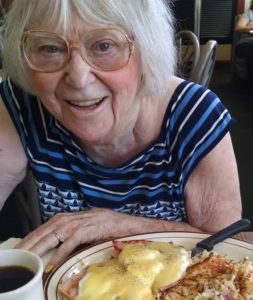
My Experience With Suicide Ideation and Suicide Prevention
TW: Discussing suicide/suicide ideation, not sugar-coated
I struggle with suicidal ideation.
I said it! It’s what some of us spend our lives afraid to say and need to learn to talk about to tackle this negative cognition. Because what is the reality? Do I actually want to end my life? It feels like I want to sometimes, but I do not. It is a cry for help when said or thought. It’s your brain telling you to talk to someone before you become a danger to yourself. Likewise, if you’re planning to end your life but are so distraught about it, talking to the right person in this time of need can save your life. If you have made unsuccessful attempts, your life is worth saving, too.
Many of us have learned from a young age, often due to childhood trauma, to bottle up our feelings. I exhibited this seriously damaging and common behavior until my mid-twenties when a near-death experience rocked me to my core. After a period of being bedridden by my PTSD, I finally started opening up by oversharing! Imagine all the friends that made me, sharing the gut-wrenching pain that has been my life with sometimes absolute strangers when I was drunk. (/sarcasm)
I spent a few years self-medicating with alcohol and drugs, but the feelings and memories returned once I started getting sober. I have thankfully had a couple of good therapists during this time who reassured me that having suicidal ideation alone does not raise alarm bells. It is a cognitive behavioral pattern that I hope to reduce in my life over time.
Experiencing Loss of Loved Ones to Suicide
I lost my father to suicide when I was 12. He had made some ugly botched attempts before then, which we had to witness. When he walked in front of a dump truck and was killed on impact, his own mother said, “he was in a better place now.” He was very mentally ill and often violent, but I always wonder how things may have been different if he had people to talk to besides his drug-addicted friends. My cousin took his own life as well. The commonalities here are simply this – poverty.
Suicide Prevention Awareness
In September, we honor National Suicide Prevention Month and raise awareness about suicide prevention.
If you are like me, you may have friends and family who have expressed a desire to commit suicide. Luckily, people I know have been getting some help this past year or so. Many people who have been hospitalized for depression will tell you that the hospital didn’t really help them solve their root problems and that it was only good for keeping them safe. I am one of those people.
I have survived two NDEs (near-death experiences), and both landed me in the psych hospital. Even though the first one involved a PTSD blackout with nothing around to hurt me and no signs I was hurting myself, I was hospitalized and very confused when I came out of my blackout a day later (no drugs involved). The second one involved someone drugging me at a party, and the staff refused to believe I didn’t try to kill myself because I wouldn’t give up anyone’s name. Psych hospital staff are militantly trained not to hurt yourself and not much else.
Serenity Circles and Talking About Suicidal Thoughts
In 2020, I virtually attended my first “Serenity Circle”. This is a way for people to learn the best ways to speak to someone struggling with suicide. Certain things help, and some things definitely do not help most people. The words we choose during these difficult and potentially dangerous times for our friends and family are crucial. Especially with distance making it difficult to reach the person directly, knowing how to approach the conversation and how to respond may save a person’s life.
It might not be easy to find a “Serenity Circle” in your area, or you may find they are more aligned with AA, but you may find it helpful. If that is not your cup of tea, then there are important organizations like NAMI (National Alliance on Mental Illness) that give great information, such as in the link below. Do not be afraid to learn more and host your own, either.
To learn more, read this NAMI article about How to Talk (and Listen) to Someone Experiencing Suicidal Thoughts.
Reading the above article and using it as a guide to conversing with someone you are concerned about is a much better method than making assumptions and calling 911 when the person may need to feel some connection.
Dealing With a Crisis
Let’s talk about what being in a crisis means. You do not need to be on the verge of taking your life to call a crisis line. If you struggle with anxiety as I do, waiting until it is that bad is not a good practice. I have called a crisis line this past year. I wasn’t feeling suicidal, but I was spinning out of control and felt like I was dying (I was not).
Many of our friends and family are not capable or choose not to get involved when we are in crisis. A lot of people who have experienced this rejection of emotional pain will not be quick to reach out for fear of more pain and rejection. If you do not feel equipped to be a good listener, resist passing judgment or telling them to “buck up.” You can also help by reminding them how loved they are and guiding them to use one of the numbers listed below. At all of these crisis lines, people are properly trained to speak to someone in crisis, especially if the person is contemplating suicide.
Addressing the Stigma About Mental Health
Of course, we all know there is far too much stigma around talking about mental health. For this reason, some people might feel safer talking to a professional than a friend. Moreover, professionals will often know what to say better than your friends. However, if you are struggling with depression and have a friend who would learn from the article by NAMI, please ask them for their help. It is a short article and gives friends and family a blueprint for assessing the level of danger.
I wish I had been able to communicate my needs better, but trauma mixed with undiagnosed autism made it so difficult to reach out. I was shamed at an outpatient center I was attempting to get help from, and I think they thought I was on drugs, but I wasn’t. Since then, I have seen improvements in mental health treatment, but it took me a long time to be able to get back into therapy after having these incorrect and irresponsible narratives spun about me by so-called psychiatric professionals.
What to Do If Someone You Know is At Risk of Suicide
If you or a friend is at risk for suicide, remember to call 988 instead of 911. We have heard many stories (and many more exist untold) about a family member calling 911 for someone having a mental health crisis, and the results are usually devastating. To repeat, if you are concerned for someone’s safety, call 988, NOT 911.
To learn more, visit the 988 Lifeline website.
In addition, The LGBTQIA+ Center has two crisis lines:
833-740-0500
702-745-4600
Freezin’ For a Reason at First Friday
Lastly, if you’re in the Downtown/Arts District area tonight, Friday, September 8th, the rescheduled First Friday Festival is also honoring Suicide Prevention Month with a ‘Freezin For a Reason’ Ice Bath challenge.
People will be able to take a 3-minute ice bath to help support Suicide Prevention. So bring a towel and a bathing suit and take a 3-minute plunge for mental health between 5 and 9 PM at the Plant-Based Plaza at the festival.
The festival will also hold a silent vigil at 7 PM for those lost to suicide.
Thank you to our supporters and sponsors!
As always, we want to thank our Patreon’ Cultivator’ supporters and sponsors who help make content like this possible.
The following Patron(s) supported the production of this article:
Crystal Gropp
The following sponsors supported the production of this article:
Viva La Compost & LunaKai Lash



